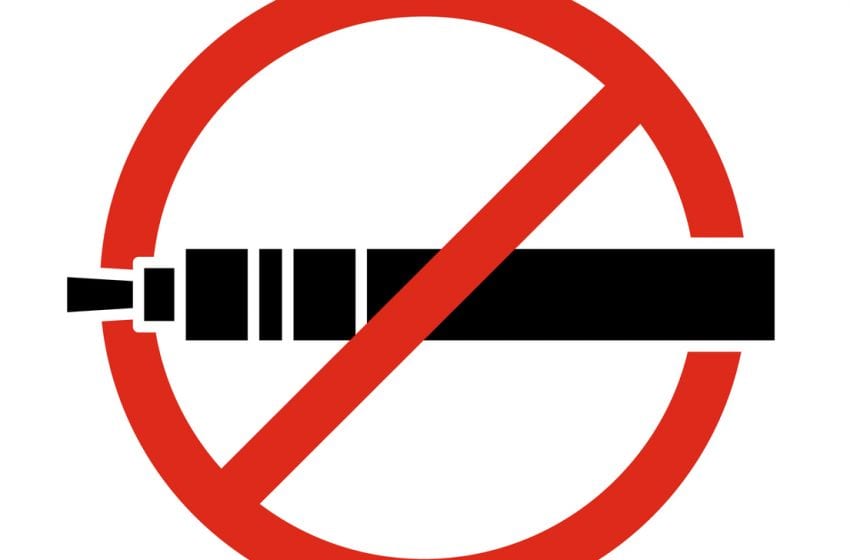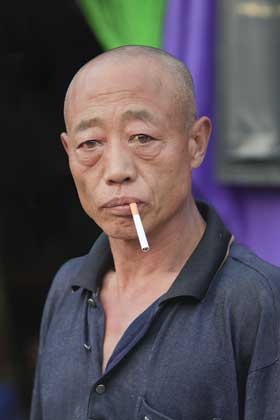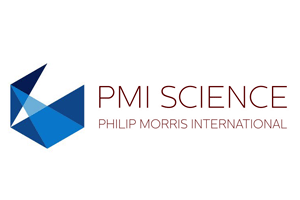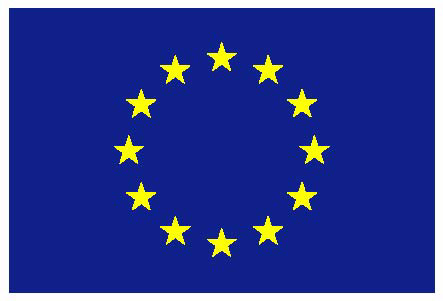New laws due to come into force in Singapore shortly will outlaw electronic cigarettes, making it illegal to use such devices even at home, according to a story in The Straits Times.
Some 18-plus e-cigarette users reportedly told the Times they planned to go back to smoking combustible cigarettes.
Currently, the sale, import and distribution of e-cigarettes are against the law, but there is no law against vapers using e-cigarettes in private places.
But a ban passed in November will make it illegal for people to buy, use and own what were described in the report as ‘imitation tobacco products, such as e-cigarettes, e-cigars and e-pipes’.
The ban is expected to come into force within the next few months.
With the total ban, Singapore will be introducing the toughest stance possible against e-cigarettes, at the same time as neighboring countries are moving towards allowing regulated use of such products.
The Times quoted stories from three regional media outlets.
In January 2017, Malaysia tasked three ministries to regulate e-cigarettes, though the Sultan of Johor has vowed to stamp out vaping in the southern state, according to a Malay Mail Online story.
In Indonesia, only businesses that had been certified by the health ministry and whose products met national standards were allowed to import and sell e-cigarettes, The Jakarta Post reported.
And, according to the Bangkok Post, even Thailand was reconsidering its three-year ban on e-cigarettes.
When the ban was passed in Singapore in November, the Parliamentary Secretary for Health Amrin Amin said the measures were meant to “de-normalize” the use of tobacco products over time and deny youth access to cigarettes. The Health Ministry considers e-cigarettes gateway products to cigarette use.
Category: Harm Reduction

Singapore out on a limb

Thailand faces vapor issues
Having banned electronic cigarettes, Thailand now has to decide on what it is to do with heat-not-burn products, according to a story on nationmultimedia.com
A recent petition sought a review of the ban on the import and local sale of e-cigarettes but the Public Health Ministry’s Disease Control Department has insisted that these products are hazardous to health and should not be used as a means to quit smoking.
According to another local report, which was published last week, Dr. Assadang Ruay-archin, deputy director-general of the department, who is also the department’s spokesman, described as untrue a story that the Public Health Ministry had distorted the findings of an analysis of the safety risks of e-cigarette use associated with toxic substances and heavy metals.
The Disease Control Department insisted that e-cigarettes were hazardous to health because people who used them could be exposed to nicotine, the addictive substance contained in combustible cigarettes.
Meanwhile, other local media reports have questioned whether Philip Morris International’s heated-tobacco product is an e-cigarette, but the company has moved to put clear water between the two products.
Philip Morris Thailand’s managing director, Gerald Margolis, said on Friday that his company’s product heated tobacco rather than burning it.
‘This is different from e-cigarettes, which generate nicotine-containing aerosols by heating a liquid without using tobacco leaves,’ he said in a press release.
He said that many smokers found it difficult to quit, so it was ‘important’ for them to have access to less harmful alternatives.
In December 2016, PMI submitted a Modified Risk Tobacco Product application to the US Food and Drug Administration and it was accepted, triggering a scientific review at the agency’s Center for Tobacco Products.
Britain’s Committee on Toxicity recently issued a press release describing the core findings of a review on heated tobacco products. It concluded that, while still harmful to health, the consumption of heated-tobacco products was likely to be less risky than smoking conventional cigarettes.

Regulatory board closing
Turkey’s Tobacco, Tobacco Products and Alcoholic Beverages Market Regulation Board (TAPDK) is being closed, according to a story in The Hurriyet Daily News.
The closure follows the introduction by the government of a number of key revisions to its economic management strategy that has involved, in part, the shutting of regulatory and supervisory bodies that had overseen the tobacco and sugar industries.
The changes were announced in an emergency decree published in the Official Gazette on December 24.
TAPDK had responsibility for the registration, authorization and regulatory systems in respect of tobacco, tobacco products, alcohol and liquor.
It was responsible for issuing regulations aimed at avoiding medical and social harms associated with tobacco and alcohol consumption.
And it was responsible for the implementation of guidelines aimed at the enforcement of laws.
TAPDK’s duties have been transferred to the Health Ministry and the Food, Agriculture and Livestock Ministry.

Quit aids failing smokers
A new study by researchers at the University of California San Diego School of Medicine suggests that, despite promising results in clinical trials, smoking cessation drugs alone might not be improving the chances of successful quitting among smokers in general, according to a story on medicalxpress.com.
“Thirty-four percent of people who are trying to quit smoking use pharmaceutical aids and yet most are not successful,” said senior study author John P. Pierce, PhD, Professor Emeritus in the Department of Family Medicine and Public Health at UC San Diego School of Medicine and Moores Cancer Center.
“The results of randomized trials that tested these interventional drugs showed the promise of doubling cessation rates, but that has not translated into the real world.”
The study, published online in the Journal of the National Cancer Institute on December 21, assessed the effectiveness of three first-line medications recommended by clinical practice guidelines: varenicline, bupropion and nicotine replacement therapy (patch).
The data was collected from the Current Population Survey – Tobacco Use Supplement – a US Census survey of adults 18 years or older conducted to obtain information about the country’s use of tobacco products.
The Medical Express story is at: https://medicalxpress.com/news/2017-12-medications-dont-smokers.html.

Medicinal cigarettes
Tobacco companies in China are ‘luring’ customers with cigarettes ‘laced’ with traditional Chinese medicine (TCM), according to a story in The Global Times.
In a post that ‘went viral’ on Tuesday, a Sina Weibo [China’s biggest social media network] user was said to have called attention to a trend for Chinese tobacco manufacturers to use TCM as a marketing tool.
Photos by ‘ZhuiFengShao JianLiuQuan’ show cigarettes labeled as having added tangerine peel and loquat, which are used in TCM for digestive problems.
Another contains Chinese caterpillar fungus, which is famous in Chinese medicine as, among other things, an expensive aphrodisiac.
The Times said that China Tobacco Sichuan was one of the companies selling the products, ‘according to reports’.
The ‘herbs’ were found in small ‘liquid-gel beads’ in the filters, as was the case in respect of China’s more common fruit-flavored cigarettes.
Quoting ‘media’ sources, the Times said that anti-smoking groups in China had railed against claims that TCM-laced cigarettes were in some way healthy since the early 2000s, but the use of TCMs in cigarettes goes back a lot longer than that.
Netizens had their fun of course. “I caught a cold, I hope this can cure my cough,” wrote Judy_Kim.

Science exposed
Four scientists and researchers who worked for Philip Morris International on its iQOS program have told Reuters that while the company was able to prove that this device reduced the exposure of users to harmful substances from the exposure associated with combustible cigarettes, that didn’t necessarily mean that using the device was less likely to result in disease.
The Reuters piece, by Paritosh Bansal, Tom Lasseter, Duff Wilson and Aditya Kalra, Philip Morris’ search for a cigarette no more harmful than a cup of coffee, is at: https://www.reuters.com/article/us-tobacco-iqos-science-risk/philip-morris-search-for-a-cigarette-no-more-harmful-than-a-cup-of-coffee-idUSKBN1EE1GQ.
“Exposure is not directly linked to the risk of having a disease,” said Hans-Joerg Urban, who is said to have joined PMI’s research headquarters as a scientist in 2005 and worked at PMI until 2010 analyzing data from clinical and laboratory experiments. “The diseases are much too complicated.”
Dorothy Hatsukami, a former member of the US Food and Drug Administration’s tobacco products scientific advisory committee, agreed. “At this point, research is still too nascent to say with certainty that reduced exposure translates into reduced risk,” she said.
PMI is seeking FDA approval to market iQOS under two different standards. It has applied for approval as a device that reduces exposure to harmful substances. And it has applied on a second track with a higher bar – to get approval to market it as carrying reduced risk of tobacco-related disease.
The first option, a special provision for companies that are unable to meet the threshold of reduced risk, comes with a restriction. Consumers cannot be ‘misled into believing’ the product is less harmful than other tobacco products, FDA regulations say.
The Reuters piece reported that PMI said the lack of combustion in the case of iQOS meant vapers were exposed to far lower levels of toxic emissions than were the smokers of combustible cigarettes.
‘The ultimate result of this is reduced tobacco related harm and diseases,’ Reuters quoted the company as saying in a statement.
Meanwhile, a longer Reuters piece, by Tom Lasseter, Paritosh Bansal, Thomas Wilson, Ami Miyazaki, Duff Wilson and Aditya Kalra, reports how scientists describe what they see as problems in PMI’s experimental methods.

Voting with their butts
A borough council in Northern Ireland is trialing ‘ballot bins’ in an effort to reduce cigarette litter across the borough, according to a story by Duncan Elder for the Portadown Times.
Ballot bins, which have been used in other places in a number of guises, are customizable ashtray bins that encourage people to use them by providing smokers with the opportunity to vote on various issues.
The bins display questions about, say, favourite films or music, and users can vote for their preferred answer by putting their butts into one of the two containers.
A window in the bins displays which choice is winning.
The bins, part of Armagh City, Banbridge and Craigavon Borough Council’s Clean Neighbourhoods Action Plan, are designed to encourage people to put their cigarette butts in a bin rather than stubbing them out on the pavement.
Three such bins are being trialed within the town centres of Armagh, Banbridge and Lurgan in an effort to counter what is described in the story as the scourge of cigarette butts littering pavements.
The installation of more bins in targeted areas across the borough is planned for the New Year.
In the past the council has tried various measures aimed at reducing cigarette litter, including the imposition of big fines.

Japan’s vaping dilemma
Japan’s national government and the Tokyo metropolitan government are at odds about how to treat heat-not-burn (HNB) products as they consider, ahead of the 2020 Tokyo Olympics and Paralympics, regulations on public-places smoking and vaping, according to a Mainichi Daily News story.
HNB products are placed in the same category as combustible cigarettes under the Tobacco Business Act; so both were included in the original draft revision of the Health Promotion Act that the Ministry of Health, Labor and Welfare (MHLW) released in March.
The health ministry has said that it would consider excluding HNB products from legal regulation, but only if their vapor was proven scientifically to be harmless.
Given this, it is likely that HNB products will be treated in the same way as combustible cigarettes in the draft revision of the Health Promotion Act set to be submitted to the regular session of the Diet next year.
Meanwhile, Tokyo is aiming to establish its own ordinance on tobacco-related products, and its draft ordinance released in September explicitly stated that HNB products would be subject to regulation.
However, of the approximately 17,000 comments received from the public about the ordinance, about 2,000 called for HNB products to be excluded from the regulation, and a Tokyo government official has since expressed a more conciliatory stand than in September. “We are still undecided whether to rule out” HNB products from the restrictions, the official said.
Philip Morris Japan says that, compared with combustible cigarettes, its IQOS HNB device reduces, on average, about 90 percent of the toxic substances generated.
And Japan Tobacco says that HNB-device vapor does not affect the indoor environment, and that its risk should not be discussed in the same breath as that of combustible cigarettes.
But the Japanese Respiratory Society released a comment in October saying that as long as there was a possibility that HNB products had a negative impact on health, the use of such products was not recommended.
And Hiroshi Yamato, a professor at the University of Occupational and Environmental Health, Japan, said, “It is a rule of public health to regulate something when in doubt, and unless there is proof that it is harmless”.

Modified-risk requests made
The US Food and Drug Administration on Monday filed for substantive scientific review six modified-risk-tobacco-product (MRTP) applications submitted by R.J. Reynolds Tobacco Company in respect of Camel Snus products.
Through its Center for Tobacco Products, the FDA said it was making these applications available for public comment in accordance with applicable laws. ‘Due to the large size of these applications, FDA will post application materials on the Center for Tobacco Products’ website on a rolling basis,’ it said.
‘There is currently a 180-day public comment period, which we plan to extend, if necessary, to provide additional time for comment as further materials are received and posted.
‘The public may comment on any part of the application, including amendments, until the docket is closed, which FDA will announce separately and will be no sooner than 30 days after the last application document is posted. FDA is committed to giving the public meaningful time and opportunity to comment on these applications and will provide more than 30 days for comment in the event the final documents posted are complex or extensive.
‘Currently, FDA has posted the applicant’s executive summary and the following seven application modules:
- Module 1: Cover Letters
- Module 2: Table of Contents, Glossary, Summary & References
- Module 3: Descriptive Information for Camel Snus Smokeless Tobacco Products
- Module 4: Labels, Labeling and Advertising
- Module 5: Environmental Assessments
- Module 8: Foreign Language Certification
- Module 9: Proposed Post-market Surveillance Program for Camel Snus Products Under a Modified Risk Tobacco Product Order.
‘The agency will issue subsequent communications when additional application documents are made public.’
The MRPTs have been made in respect of Camel Snus Frost, Camel Snus Frost Large, Camel Snus Mellow, Camel Snus Mint, Camel Snus Robust, and Camel Snus Winterchill.
Starting today, public comments on these applications may be submitted to docket FDA-2017-N-4678 on regulations.gov.
The applications are at: https://www.fda.gov/TobaccoProducts/Labeling/MarketingandAdvertising/ucm564399.htm?utm_source=Eloqua&utm_medium=email&utm_term=stratcomms&utm_content=mrtp&utm_campaign=CTP%20News%3A%20RJR%20MRTP%20-%20121817.

Tracking rules adopted
Rules governing the EU’s proposed tobacco-products tracking-and-tracing system have been adopted.
A press note issued on Friday by DG Sante (the European Commission’s Directorate-General for Health and Food Safety) said that the measures that needed to be enacted to put in place the EU-wide tracking-and-tracing system planned for under articles 15 and 16 of the EU’s Tobacco Products Directive had been clarified in secondary legislation adopted by the Commission.
‘The implementing regulation on technical standards for the establishment and operation of a traceability system for tobacco products lays down rules that will ensure that all unit packets of tobacco products produced in, destined for or placed on the EU market will be marked with a unique identifier and their movements recorded throughout the supply chain (from the manufacturer to the last level before the retail outlet),’ the press note said.
‘It obliges each member state to appoint an entity (‘ID issuer’) responsible for generating and issuing the unique identifiers, and lays down clear rules to ensure that the traceability system remains fully independent, notably from the tobacco industry, and that functions are carried out impartially.
‘The implementing decision on technical standards for security features applied to tobacco products obliges EU countries to require security features, composed of at least five types of authentication elements (including overt, covert and semi-covert), to be applied to unit packets of tobacco products. One of these elements must be provided by an independent third-party provider.
‘Member States must ensure they have the necessary means to ensure the authenticity and integrity of the security features.’
The press note went on to say that EU countries and ‘economic operators’ could now start preparatory work for the two systems of traceability and security features.
‘These should be in place by 20 May 2019 for cigarettes and roll-your-own tobacco and by 24 May 2024 for all other tobacco products (such as cigars, cigarillos and smokeless tobacco products).









